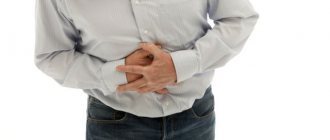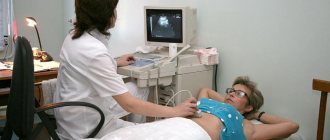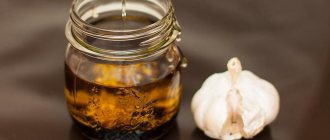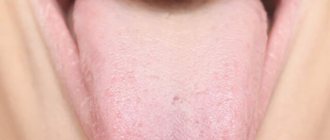Our main body cleansing
We are talking about some kind of cleaning, of course about defecation.
There seems to be nothing to talk about here. And yet, let us take the liberty of asserting that, despite daily practice, most of us treat this process without the necessary seriousness and without proper awareness. And the process deserves it, moreover, it demands it. After all, it is in this way that our physical body, day after day, is freed from the lion’s share of toxins, toxins and uninvited microorganisms. To put it bluntly and poetically, let’s say, we consider the fight against constipation to be a lowly, if not humiliating, matter. Which is not true. Since we are created as we are, we must treat both our spirit and body with equal respect, no matter what surprises it may present to us. Therefore, let's try to talk about the problems of defecation without blushing or hiding our eyes, as if we were talking about the intricacies of iambic pentameter.
Diagnosis of constipation - start with simple tests
The most important thing in a doctor's practice seems to be to identify those cases of constipation that may indicate another serious illness. Therefore, it seems reasonable to reiterate that absolutely all patients should be subjected to a basic proctological examination. An old Latin aphorism says that a wise doctor always examines a patient through the anus. "Medicus sapiens digitum suum semper in ano tenet."
It should be remembered that almost 2/3 of all cases of colorectal cancer are available in the basic diagnostic tests that are in the arsenal of tests of any doctor.
Stool analysis and proctoscopy do not require special preparation of the patient; they are extremely simple and cheap to perform. Detection of changes in the wall of the end of the colon, as well as the presence, consistency and color of stool, provides a lot of information, facilitating further management of patients visiting a gastroenterologist. In unclear cases, the diagnosis can be expanded by contrast examination of the colon and colonoscopy.
Proctoscopy
Ideology of defecation
Considering the enormous importance of the process of defecation, the word “ideology” in this context seems quite appropriate to me. In this matter, it is necessary to adhere to certain principles, since deviation from them can ultimately lead to disturbances in the functioning of the intestines.
- Principle 1: If the time has come for your bowels to contract, you need to give them the opportunity to do so before the urge subsides. The importance of all other matters at this moment should fade in your consciousness to the point of illusoryness. Delay leads to a decrease in normal intestinal reflexes, and if you practice them constantly, you will inevitably end up in severe dependence on your own digestive system, and you will not be able to breathe from constipation.
- Principle 2. Regarding the duration of your privacy in the toilet, try to avoid any dictate. Haste in this matter is as unhelpful as excessive delay. If your body is in order, you can do it in a minute.
- Principle 3. The success of bowel movement depends to a large extent on the conditions in which it occurs. Your task, not to say duty, is to provide yourself with maximum comfort within the confines of a private cabin. What comforts can you bring to, say, a public restroom if circumstances force you to visit such places? You should, of course, bring toilet paper and disposable seats. Now, thank God, they are no wonder to anyone. This is necessary not only for hygiene, but also for complete relaxation and the absence of unnecessary thoughts (about the same hygiene).
- Principle 4. Do not have the habit of doing extraneous activities while visiting the restroom - reading, solving crossword puzzles, etc. You should participate in the process with your whole being and participate consciously.
No matter how strange it may seem, there is a place for an ethical aspect in this matter. Try to imagine that along with feces you are getting rid of bad thoughts, bad opinions and vices. What exists in our minds really exists, and if we believe in something, then it actually happens.
2. Reasons
The main causes of defecation disorders include, first of all, gastroenterological and proctological diseases: all kinds of inflammatory and/or ulcerative processes of the intestines, stomach, liver, biliary tract; intestinal infections, helminthiasis; hemorrhoids, anal fissures, paraproctitis, rectal prolapse and many others. Often, one or another difficulty in bowel movement is accompanied by tumor growth. In addition, in some cases, the cause of persistent constipation (up to the complete inability to clean the rectum) or, conversely, fecal incontinence, becomes a psychoneurological or vertebroneurological pathology, causing disturbances in muscle (in particular, sphincter) tone, peristalsis, and the functioning of the neuronal conduction system. systems. In turn, such a pathology can be caused by injuries, dys- and atrophic processes, and certain types of genetically determined anomalies.
Visit our Gastroenterology page
How it should be
In order for me to better navigate the issue under study, it is necessary to define a certain standard. In other words, determine what the ideal process should be and what the final product should be. As for the number of visits to the toilet per day, with normal functioning of the stomach and intestines this should happen once a day, although in some completely healthy people this may happen more often. Toxins should leave the body not only painlessly and without excessive gas release, but also bringing you a certain pleasure. In this case, the feces themselves should have a distinct sausage-like shape, golden color and practically no odor. These are signs that your gastrointestinal tract is working properly and the amount of toxins in your body is within normal limits. This is about the standard.
Now about deviations from it.
How it shouldn't be
What state of affairs should cause us and you concern? Here we can distinguish two extremes. The first is various types of constipation. Their nature can be either completely trivial or the most unexpected. The underlying cause of constipation is fiber deficiency. You should look for it in vegetables and fruits. If such dietary adjustments do not have the desired effect, try drinking raw pumpkin juice, raw rhubarb juice, or vegetable oil on an empty stomach. The source of stagnation of fecal matter in many cases is the sigmoid colon (to the left and slightly below the navel). With frequent constipation, a compaction is felt in this place. To make it easier for yourself to go to the toilet in the morning, do not neglect the advice: give it (the gut) your first three minutes in the morning. During this time, press on this area with three fingers of both hands, lightly massaging the capricious area of our intestines. However, you need to be sure that you are massaging the sigmoid colon and not the spleen, which, to put it mildly, is not beneficial.
In other cases, the cause of constipation may lie in tightness of the smooth muscles of the intestines. It can arise from poor nutrition and from increased or decreased stomach function. Then your stool, having difficulty seeing the light, will consist of peas, resembling sheep feces (in other cases it indicates either a deviation in the function of the stomach or gastritis). Pumpkin juice is not enough here; you should also work on your mental state, take baths with aromatic oils, and do auto-training. And again, proper nutrition. If the situation is more serious, you will have to consult a doctor.
Constipation - individual medical practice
Constipation of stool is one of the most common human diseases in highly developed countries. This is indicated not only by statistical data on patients seeking medical help, but also, above all, by an analysis of drug consumption, which shows that laxatives are the most frequently used.
Constipation is a pathological condition in which stool is passed less than three times a week. However, it should be remembered that some people feel good and healthy when they have fewer bowel movements.
Constipation
At the beginning of this century, Dr. Stanislav Breuer wrote in The New Home Doctor: “Constipation is very often caused by poorly treated intestinal catarrh in childhood, ulcers, dysentery, typhus, and also excessive overeating. Chronic constipation has a very bad effect on the entire body, impedes blood circulation, causes changes in the lungs, liver, catarrh, shortness of breath, palpitations, anemia, back pain and nervous disorders.”
The act of defecation itself is a complex process consisting of three phases and controlled by the central centers of the brain and spinal cord and the peripheral centers of the sigmoid and rectum.
- In the first phase, stool moves from the sigmoid colon to the rectum, which causes a feeling of pressure.
- In the second phase, the sigmoid colon reflexively contracts and straightens, which facilitates the further movement of stool into the rectum.
- In the third phase, with the participation of the abdominal press and as a result of massive peristaltic movements, with simultaneous contraction of the levator ani muscles and relaxation of the anal sphincter muscles, feces are expelled.
Constipation most often occurs as a result of obstruction of bowel movements (dyschezia) or, less commonly, obstruction of passage through the large intestine. Smoking, physical inactivity, and a diet low in fiber predispose to constipation.
What does proper nutrition mean?
First of all, you should get an idea of the combination of products. They are classified as follows:
- Proteins (nuts, cereals, beans, eggs, mushrooms, meat products, fish, cheese, cottage cheese, eggplant, milk).
- Carbohydrates, i.e. starches and sugars (cereals, potatoes, peanuts, zucchini, pumpkin, yellow and white sugar, jam, honey).
- Moderately starchy (cauliflower, beets, carrots).
- Sweet fruits (dates, figs, apricots, grapes, prunes, dried apricots, persimmons). Fats (olive oil, sunflower oil, butter, most nuts, lard, fatty meat, cream, sour cream).
- Sour fruits (oranges, grapefruits, pomegranates, lemons, sour grapes, sour plums, sour apples, tomatoes).
- Semi-acidic fruits (sweet cherries, sweet apples, pears, peaches, apricots, blueberries, currants, strawberries).
- Non-starchy and green vegetables (celery, cabbage, spinach, turnips, sorrel, beet leaves, onions, eggplants, cucumbers, kohlrabi, parsley, rhubarb, asparagus, garlic, radishes, sweet peppers).
- Melons (melons of all varieties).
Now about what doesn’t go with what or what types of food should be eaten at different times:
- Carbohydrates with proteins.
- Proteins of different origins.
- Acids with proteins.
- Fats with proteins.
- Sugars and proteins.
- Sugars and starches.
Some experts believe that constipation is often a consequence of general depression. This means that your entire body has become so sick of life that it has decided to self-poison itself, retaining toxins specifically for this purpose. How to deal with this? The same experts insist in this case on increased attention to how your life proceeds. Obviously, she will have to be dealt with thoroughly.
Well, those who believe that depression is not the cause of constipation, but exactly the opposite, advise fighting it, for example, with the help of glycerin suppositories. They help with many types of constipation, and, unlike other similar remedies, do not affect intestinal reflexes and do not leave any traces in the body.
Another anomaly in the functioning of the intestines is diarrhea (there is an echo of something poetic), aka loose stools, aka diarrhea. In essence, this is an emergency self-cleansing of the body from poor-quality or unusual food and, in general, from anything deeply unpleasant to your stomach and intestines. In this case, you need to give your body the opportunity to finish the job by helping it with disinfectants and fixatives. It is preferable to use oat decoction in these cases: one glass of oats is boiled in two liters of water, the oats are thrown away, and the liquid is drunk in small sips.
Do not forget that any cleansing is associated with dehydration of the body, especially something as intense as diarrhea. Therefore, until the functioning of your stomach and intestines returns to normal, drink more pure water (not tap water) or tea without sugar.
The system needs to be monitored. From the point of view of self-diagnosis, the color of stool should be considered very significant. Deviation from the standard color in the dark direction and the presence of a strong unpleasant odor indicate excessive contamination of your body and the need for additional cleaning. Feces that are too light should be a serious concern. This is evidence of insufficient bile. And bile is an enzyme that is extremely necessary in the digestion process. Its disadvantage is no joke: without bile, food does not break down. It will not be possible to do without a choleretic agent. There is a choleretic method called tubage: after drinking a glass of mineral water (Borjomi or Essentuki-17) on an empty stomach, you need to lie down so that the lower part of the body is higher than the upper, and remain in this position for about half an hour. You can use choleretic herbal infusions, infusing them in accordance with the recommendations for each specific infusion. An abundance of gases indicates stagnation of food and its fermentation, which in turn leads to the formation of excess mucus in the intestines. And it is the cause of many diseases. This again indicates poor nutrition.
Wise Chinese say: you should stroke your belly more often. A few simple techniques of acupressure and internal massage will help you maintain the tone of the digestive system and prevent various deviations from normal functioning. We recommend making it a habit not to get out of bed in the morning without massaging the vital points of Ju-san-li. According to Chinese reflexology, they are responsible for the functioning of all internal organs located below the diaphragm and for the general tone of the body. These points are paired and are located on both legs. You should look for them on the front of the shin, four fingers below the depression under the kneecap, next to the bone on the outer side of it.
From Chinese traditional medicine, you can also recommend one simple exercise - it will help if you have problems with bowel movements. Feet shoulder-width apart, knees slightly bent, back straight, arms bent at the elbows in front of the stomach. While in this position, retract and release your anus. After 30-40 repetitions, the urge will inevitably appear.
Abdominal breathing has a massaging effect on the insides. Its principle is that you draw air into your lungs not by expanding the chest, but by lowering the diaphragm (this is how you usually breathe when you lie down). Thus, it massages the abdominal area. By practicing this breathing, you can constantly keep your stomach and intestines in excellent shape.
And one more piece of advice regarding toilet paper. At any minimum opportunity, refuse it in favor of cold water. Firstly, you will never have to get acquainted with hemorrhoids, and secondly, you will forget what irritation of the anal mucosa is.
What should the toilet be like?
In short, the restroom should be cozy. Naturally, we all have a different concept of comfort. It is in accordance with your own concept of comfort that you should create it. The somnambulistic movement of goldfish between the flexible stems of underwater vegetation fascinates you - wonderful! Place an aquarium in the toilet. Think first of all about your own convenience, do not chase the demands and tastes of strangers if they run counter to yours. Everything matters: the color of the walls, the type of toilet, and the level of sound insulation. Don’t give a damn about the quality of toilet paper - bodily sensations during the process of defecation are very important. Nothing should overshadow the moments of communication with your own digestive tract.
Of course, there can be countless opinions, concepts and recommendations around the topic raised (about as many as there are doctors). We have offered you the most affordable ways to care for your own digestive system and the most proven methods of keeping it in order. Whether to adopt any of the above or not is up to you. But even if, as a result of our modest efforts, we were able to convince you that visiting the toilet is not an annoying necessity, but a very wise procedure and should be treated with due respect, our goal has been achieved.
4.Treatment
In this case, one could cite as many basic approaches, therapeutic strategies and specific treatment regimens as there are direct causes of difficult, frequent and/or painful bowel movements, i.e. It would take a very long time to list them. In addition, treatment is always prescribed taking into account purely individual characteristics: concomitant or previously suffered diseases, immune status, predisposition to allergic reactions, and many others. It is important to understand that it is not the disordered bowel movement itself that needs therapy (the human body is designed in such a way that this process cannot be disrupted for no reason, “out of the blue”), but the disease or disorder that underlies such disorders.
It is equally important to follow the simplest and most obvious preventive measures, i.e. show common sense and the instinct of self-preservation in organizing nutrition, hygiene, physical activity and the actual act of defecation: it should be fairly regular and last no more than a minute. “Sitting” in the toilet, so familiar to many, let’s be honest, with a book or smartphone is a direct risk factor in the development of proctopathology, which then requires even longer and more intense straining.
It is much easier to prevent the formation of this dangerous vicious circle than to break it later.
Pedagogical recommendation
We consider it necessary to say a few words that are not directly related to gastrointestinal problems, but directly to raising a child.
Many, if not all, parents at some point experience the following picture. The beloved child, comfortably positioned in close proximity to freshly produced feces, studies it with enthusiasm, without being shy about resources. The study is often accompanied by selfless hooting or hooting, or takes place in concentrated silence. What does the average parent do about what they see? In most cases, he puts on a stern face and drags the naturalist under the tap, trying to minimize the area of contact with him. The washing process is usually accompanied by instructions in a categorical form: “Kaka! You can't! Ugh! Byaka! A-ta-ta! It happens that it can’t be done without a spanking. All of the above parental actions should be considered erroneous and unacceptable. The fact is that the child, having an (yet) undivided consciousness and being unencumbered by any complexes, treats his bowel movements as a part of himself. And at the moment when, as it seems to you, you are accustoming him to cleanliness, you are actually crippling his psyche, suggesting that there is a place in him for the disgusting and unclean, for example, feces. By doing so, you are laying the groundwork for future complexes, and not just any complexes, but sexual ones. Therefore, no matter what your child does with his own feces, try not to express your displeasure about it. Distract the child as carefully as possible, understanding that such research is a necessary stage in understanding the world and oneself.
When writing the material, we used the recommendations of psychologist Veronica Kazarnovskaya and Dr. Arkady Belyavtsev and the reasoning of Oleg Alyamov.
Author of the article: family doctor Martyshov V.A.








